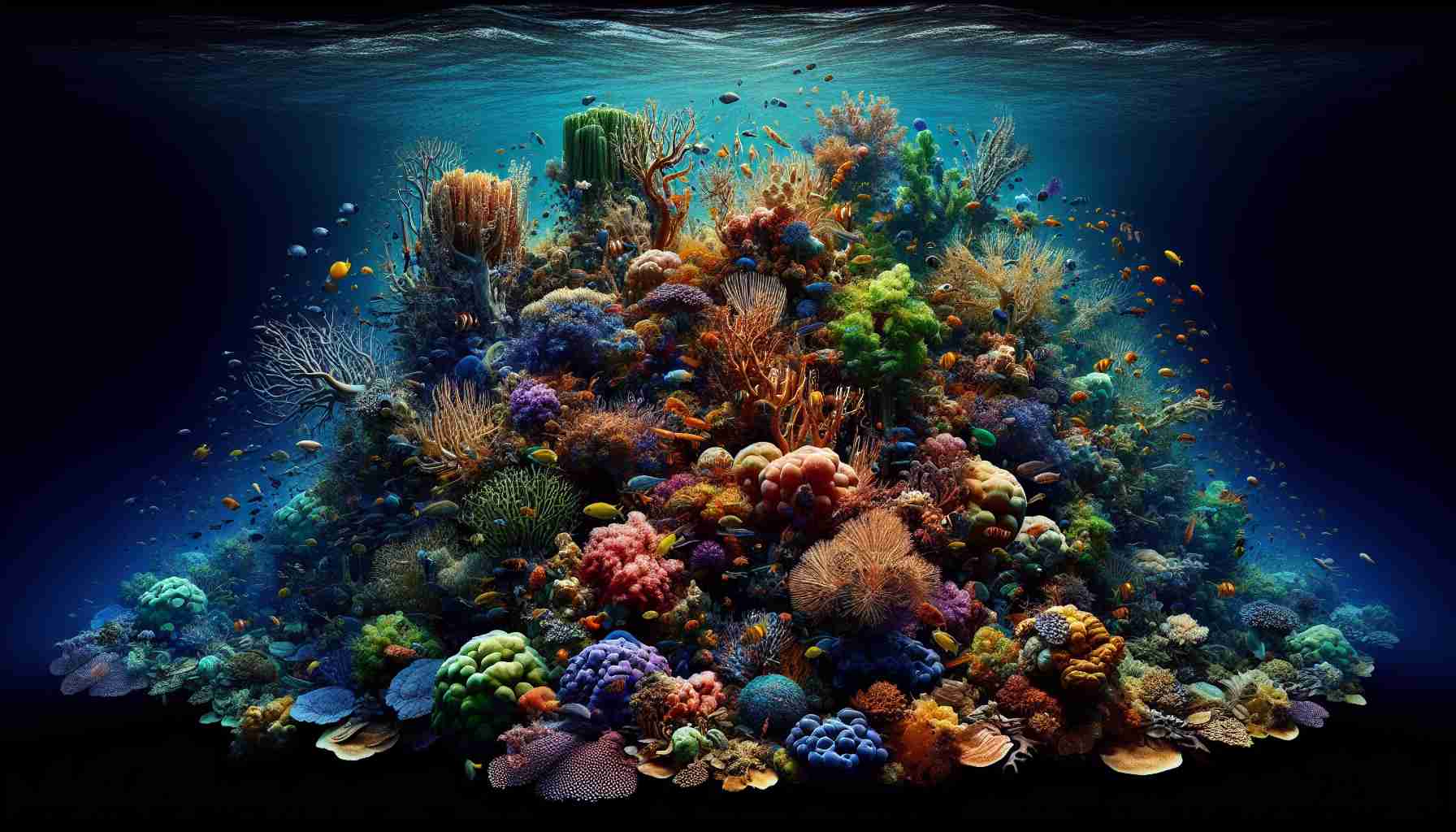The Great Barrier Reef’s Evolution
Life in the Great Barrier Reef is undergoing dramatic shifts, primarily driven by climate change and human activities. Recent research conducted by an international team led by Lancaster University sheds light on these alarming changes.
Reef fish are essential for global marine ecosystems. They contribute to food security, regulate seaweed growth, and even shape beach landscapes through sand production. The study highlights stark contrasts between fish communities today and those from the 1990s, with a marked acceleration in these transformations.
Key findings reveal that the diversity of fish species is driven more by the variety of corals present rather than sheer coral volume. With an uptick in pressures like coral bleaching, extreme heat events, and intensified storms, the reef’s ecosystem is facing unprecedented challenges.
The research team utilized data from a Long-Term Monitoring Program, capturing changes from 1995 to 2022 across over 1,200 km of the reef. This comprehensive analysis revealed fluctuations in species richness, particularly among omnivores and herbivores, with notable declines in the reef’s northern sections.
In the south, fish communities are experiencing significant species turnover, indicating an unstable environment. Researchers emphasize that this ongoing degradation, fueled by increasing disturbances, poses severe implications for the future of the Great Barrier Reef’s biodiversity. These findings underscore the urgent need for action to preserve this vital natural wonder.
Global Ripples: The Great Barrier Reef’s Transformation and Its Broader Impact
The ongoing evolution of the Great Barrier Reef extends well beyond marine biodiversity, carrying profound social and economic ramifications. The reef is not only a hub for biodiversity but also a critical resource for coastal communities, tourism, and fisheries, which together contribute billions to Australia’s economy. As reef health declines, communities relying on tourism— which attracts millions of visitors annually—may face job losses and economic instability.
Conversely, the cultural implications are significant. Many Indigenous Australian communities have longstanding connections to the reef, viewing it as a source of identity and livelihood. As ecosystems shift, these changes threaten not only the biological integrity of the reef but also the rich cultural practices linked to its stewardship.
In terms of environmental effects, the decline of reef systems could herald a thinking shift for global conservation efforts. Observed trends suggest an urgency for greater resilience strategies in marine ecosystems worldwide. With climate change catalyzing these shifts, the need for coordinated international policies aimed at mitigating ecological damage will become increasingly pressing.
The long-term significance of these changes cannot be overstated; the health of coral reefs like the Great Barrier Reef serves as a bellwether for oceanic health globally. If left unaddressed, these transformations could alter marine ecosystems irreversibly, underscoring the imperative for stronger conservation efforts and community support systems.
Shocking Changes in the Great Barrier Reef: Evolution of Marine Life Explained
The Great Barrier Reef, one of the world’s most biodiverse ecosystems, is undergoing rapid and alarming changes due to climate change and human activities. As a result, researchers are raising urgent alarms about the future health of this vital marine environment.
Key Findings from Recent Research
Recent research led by Lancaster University has highlighted several critical aspects concerning the health of the Great Barrier Reef, particularly focusing on the essential role of reef fish in marine ecosystems.
1. Fish Communities Shift: The study denotes that the composition of fish communities has dramatically changed since the 1990s, signaling significant ecological shifts. The decline in species particularly among herbivorous fish could alter the ecological balance, impacting algal growth and overall coral health.
2. Impact of Corals on Fish Diversity: A crucial finding underscores that the diversity of fish species is more closely linked to the variety of corals present rather than their total volume. This suggests that preserving a wide array of coral types is essential for maintaining fish populations.
3. Long-Term Monitoring Insights: The research utilized a substantial dataset spanning from 1995 to 2022, covering over 1,200 kilometers of the reef. This analysis showed a worrying decline in species richness, especially noticeable in the reef’s northern sections where omnivores and herbivores have diminished drastically.
Why This Matters
# Pros and Cons of Current Reef Conditions
– Pros:
– Biodiversity: The Great Barrier Reef is home to thousands of species, making it a hub for marine biodiversity.
– Ecological Services: Healthy fish populations contribute to food security and the regulation of seaweed growth.
– Cons:
– Degradation: Continual environmental stressors, including coral bleaching and extreme weather events, threaten the delicate balance of the reef.
– Species Loss: Specific fish populations are declining, which may lead to long-term ecological collapse.
Use Cases of Fish in the Ecosystem
Fish species play multiple roles in the reef ecosystem:
– Herbivores: Help control algal growth which can otherwise smother corals.
– Predators: Maintain population control of various marine species, promoting a balanced ecosystem.
– Sand Production: Contribute to the production of sandy beaches through biological processes.
Limitations of Current Research
While the study provides valuable insights, it is essential to recognize its limitations:
– Geographic Focus: The research primarily covers the Great Barrier Reef, and findings may not generalize to other marine environments.
– Temporal Scope: The data collected spans nearly three decades, but long-term predictions require ongoing monitoring and additional research.
Pricing and Economic Impact of Conservation Efforts
Protecting the Great Barrier Reef is not just a biological concern; it also has significant economic implications:
– Tourism Revenue: The reef contributes over AUD 6 billion annually to Australia’s economy through tourism.
– Conservation Costs: Investments in conservation measures are crucial, with estimates ranging into the millions to implement coral restoration and habitat protection initiatives.
Trends and Innovations in Conservation
The concern over the reef’s health has prompted innovative conservation efforts:
– Artificial Reefs: Initiatives to create artificial reefs aim to enhance fish habitat and promote biodiversity recovery.
– Coral Restoration Projects: Innovative techniques, such as coral gardening and breeding, are being developed to rehabilitate damaged ecosystems.
Conclusion: A Call to Action
As climate change and human activity continue to impose unprecedented pressures on the Great Barrier Reef, urgent action is needed to combat these threats. The findings from the recent research underscore the importance of preserving the ecological balance for not just the reef but the global marine ecosystem.
For more insights on marine conservation and biodiversity, visit National Geographic for information on ongoing efforts to protect our oceans and their inhabitants.








